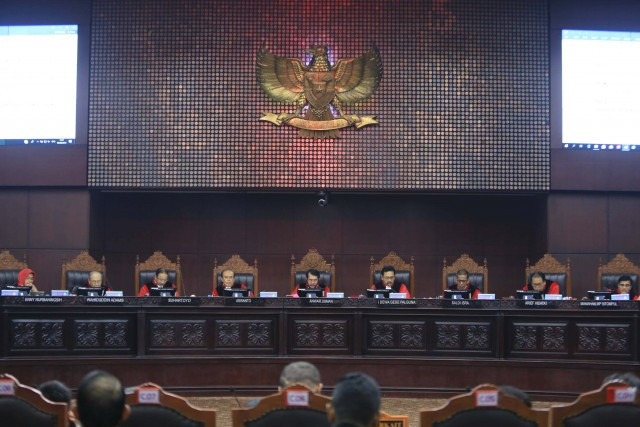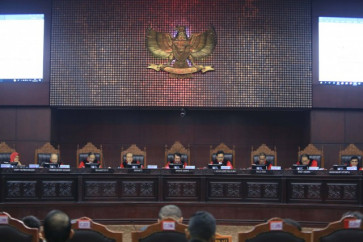Popular Reads
Top Results
Can't find what you're looking for?
View all search resultsPopular Reads
Top Results
Can't find what you're looking for?
View all search resultsAnalysis: Losing presidential candidates go for the jugular. But for what?
Change text size
Gift Premium Articles
to Anyone
B
oth losing presidential candidates, Anies Baswedan and Ganjar Pranowo, are demanding nothing less than a revote in their appeal to the Constitutional Court, claiming that the Feb. 14 election should be invalidated and the results annulled because of problems with the nomination of the running mate of the winning candidate.
Such a demand is unprecedented and unlikely to be met by the same court, and the same nine justices, which, just six months ago bent the electoral law to allow Gibran Rakabuming Raka, the 36-year-old son of President Joko “Jokowi” Widodo, to run as the vice presidential candidate to Prabowo Subianto, despite not meeting the minimum age of 40 under the then prevailing law.
The court is currently hearing appeals from Anies and Ganjar, and also from dozens of political parties and individual candidates that ran in the legislative elections, and has an April 22 deadline to announce all its decisions, which will be final and binding.
The General Elections Commission (KPU) on March 20 declared Prabowo, the current defense minister, and Gibran, the mayor of Surakarta in Central Java, winner of the presidential race with 59 percent of the vote, ruling out a run-off. Former Jakarta governor Anies came second with 25 percent and Ganjar, formerly the Central Java governor, third with 16 percent.
Their separate appeals to the Constitutional Court are the last legal recourse for Anies and Ganjar to contest the results. The political avenue, through the House of Representatives using its right of inquiry to investigate claims of fraud in the elections, is losing momentum with no political parties, not even those that backed the tickets of Anies and Ganjar, willing to take the lead.
In their appeals to the court, both Anies and Ganjar are calling for a new election to be held without Gibran, claiming that his nomination was problematic. They point out that members of both the court and KPU have already been found to have been in breach of ethics when they allowed Gibran to run. Despite this finding, their decision remained, and members of both institutions were allowed to keep their jobs and manage and supervise the 2024 elections.
In October, one week before the presidential nomination closed, the court carved out an exception to the minimum-age rule in response to a petition from a law student in Surakarta. The court ruled anyone who had served as a regional head could run in the presidential election, which meant that Gibran could run. A week later, the KPU accepted the Prabowo-Gibran ticket on deadline, although it had not received clearance from the House of Representatives, the only institution that could change the law. The House only changed the law the following week.


















